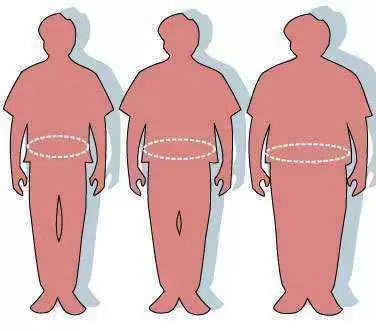
Celiac.com 01/29/2021 - The U.S. has taken the lead of the industrialized world when it comes to weight-gain, especially obesity, and many other industrialized nations are in close pursuit. Since Ancel Keys' flawed assertion linking dietary cholesterol with heart disease in 1951, the industrialized world has sought to reduce its consumption of fats—especially saturated fats(1). Consequently, the last fifty years has seen a steady shift away from dietary fats. Our carbohydrate consumption, particularly in the form of grains and sugars, increased at the same time—and the obesity epidemic was begun.
A recent issue of People magazine reported on a 17 year old young woman who struggled extensively with obesity and could not halt a steady and dangerous trend of weight gain(2). The only answer she and her parents could find was to have an adjustable band surgically placed around her stomach. This band makes it painful to eat more than very small portions. The band was loosened somewhat as she approached her target weight, but it still severely limits the quantity of food she can eat. Although she is much happier and healthier at her current size, I could not help but wonder if the surgery was a mistake. No mention was made of ruling out celiac disease. It is doubtful that celiac disease was even considered. Yet Dickey and Kearney reported on an examination of data gathered on 371 newly diagnosed celiac patients. These two researchers found that 39% of these patients were overweight, one third of whom were obese, while only 5% of these celiac patients were underweight at diagnosis(3). Further, Dr. Joseph Murray has repeatedly discussed two case histories of morbidly obese patients with occult celiac disease(4). Tragically, the diagnosis came too late for one of these patients. She died before the gluten-free diet could reverse her obesity and the health hazards that go with it.
Celiac.com Sponsor (A12):
The information, that gluten can and does cause obesity and that a gluten-free diet can reverse it, does not seem to have reached physicians involved in general practice or those working in the field of obesity. The young woman featured in the People article might have been spared considerable pain and expense had she first been investigated for celiac disease and gluten sensitivity. This article also mentioned that the number of children between ages 10 and 19 who are undergoing the same gastric surgery tripled between 2000 and 2003 yet it is doubtful that celiac disease was ever considered among these children. How many of these children could be spared the pain and risks associated with gastric weight-loss surgery? Such experimentation with their nutrition is also suspect because their bodies are still developing and such artificial alterations may be depriving these children of important nutrients. (I have previously speculated that celiac associated obesity results from food cravings driven by specific nutrient deficiencies.)
Given the recent discovery that celiac disease afflicts more than 1% of the U.S. Population(5) and gluten sensitivity has been found in 11% of those tested at a Texas shopping mall(6) and given the rates of overweight and obese individuals found among newly diagnosed celiac patients, it seems likely that much of the weight-gain epidemic that is sweeping the industrialized world is being fueled by undiagnosed gluten sensitivity and celiac disease (gluten syndrome). I suspect that if our civilization is ever to escape this adipose prison, we must return to getting more of our calories from fats, and fewer from grains and sugars.
References:
- Taubes G, Good Calories. Bad Calories. Alfred A. Knopf. New York, 2007. 16-17
- Williams A, One Teen's Gastric Surgery. People. Dec. 17, 2007. 107-110
- Dickey W, Kearney N.Overweight in celiac disease: prevalence, clinical characteristics, and effect of a gluten-free diet. Am J Gastroenterol. 2006 Oct;101(10):2356-9.
- Murray, J. American Celiac Society conference, Mt. Sinai Hospital, NYC, 1997 and Canadian Celiac Association National Conference, Calgary, 1999.
- Celiac Disease Foundation 2001
- Fine K, personal communication.










Recommended Comments
There are no comments to display.
Create an account or sign in to comment
You need to be a member in order to leave a comment
Create an account
Sign up for a new account in our community. It's easy!
Register a new accountSign in
Already have an account? Sign in here.
Sign In Now